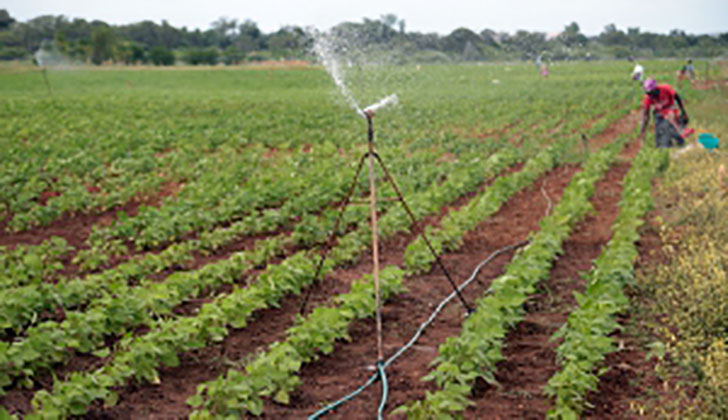By Christopher Makaza
The government is committed to provide a guarantee of RTGs 2.8 billion for the Smart Agriculture formerly known as the Command Agriculture which will be disbursed through CBZ, Agribank and Stanbic,the Harare Post has learnt.
The Agribank facility will support manufacturers of inputs like seed, fertiliser and chemicals while Stanbic will cater for contract farmers.
A commercial farmer from Mashonaland Central Province, Mr Kundai Kazingizi encouraged the government to quickly finalise the issue of government guarantee so that the banks can start to disburse the funds in time for farmers to do the necessary preparations to ensure food security.
“We implore our government to swiftly address the issue of government guarantee which are a pre-requisite for banks to assist farmers. Time is not on our side now, we are expecting first rains soon so we need to finalise on the issue of land tillage and procurement of the needed seed and chemicals. We want to make use of the first rains so as to maximise our production,” he said.
A contact from the Department of Agricultural, Technical and Extension Services (AGRITEX) says the skyrocketing of maize seed in retail shops will affect farmers who may end up looking for cheap alternatives resulting in low crop harvests in the 2019-2020 agricultural season, thereby threatening food security
The increases come just as Zimbabweans are finalising preparations for the summer cropping season.
Speaking to Harare Post, the contact revealed that estimated cost by AGRITEX for a hectare plot of maize under High Management Levels recommended by Good Agronomic Practices (GAPs) stands at RTGs 16 848 for the 2019/20 farming season compared to the 2018/19 season which had a total cost of between RTGs 900 and RTGS 1500 per hectare.
The contact further noted that the high cost of the seed will force farmers to rely on government funded programmes such as the Presidential Input Support Scheme and the CBZ Commercial Agro Yield.
According to the contact, the country is targeting 1.5 million hectares for maize production and of the total hectares, 800 000 hectares will be covered by the Presidential Input Support Scheme while the CBZ scheme will cover 210 000 hectares. Self-financing farmers will cater for the remaining 490 000 hectares
Planting of the 2020 cereal crops, mainly maize, is expected to start in November and the harvest period is foreseen to begin in April next year. Weather forecasts for the October‑December 2019 period indicate a higher probability of average to above‑average rainfall in the main cereal producing provinces of the north, auguring well for planting prospects and early crop growth.
Contact urged farmers to take advantage of the early rains to increase yields.
Speaking to farmers recently on the issue of Smart Agriculture, Minister of Lands, Agriculture, Water, Climate and Rural Resettlement Perence Shiri said, “Approach to what we used to call command agriculture is now more of Smart Agriculture where we are changing the term. We are migrating from command agriculture to smart agriculture, with the main objective being that of import substitution in terms of grain. We do not want to continue importing grain.”
Minister Shiri went on to explain how Smart Agriculture is processed with the involvement and help of extension officers. He said the procedure involves registration by farmers, verification of farmers, contract signing by farmers, and then the paper work is submitted to CBZ. CBZ will then invite the farmers to come and sign the necessary contract documents related to the bank requirements. Thereafter, CBZ will advise the farmer where he or she will get the inputs depending with the area the farmer comes from.




